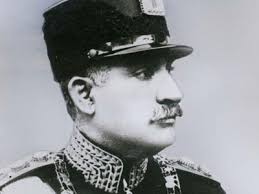Good leaders surround themselves with good people and inspire them. The Prince by Niccolo Machiavelli has much to say about leadership. This post is about how the leader's character is evident in her staff.
Early in the book, Machiavelli tells the reader that those who want to understand a valley climb a mountain and those who want to understand mountains look up from the valley. With this he says leaders understand the people and the people understand leaders.
My view of leadership, like Machiavelli's, is from the valley looking up. I was never higher than a staff sergeant in the Army and turned down any job above manager as a civilian.
But looking up, I could see things differently than the person in charge. Machiavelli says that a leader must be sure that the staff directly reporting to her be completely loyal to her, or she should dismiss them. Machiavelli says the character of her staff defines the leader herself.
In my experience both in and out of the Army, one sure sign of a weak and indecisive leader is a staff that is fighting among themselves for power rather than working together for the interest of the leader. My last civilian job was at a museum and library founded by a man who raised more than $100 million for the place he founded and was viewed as an autocrat by his staff. But during the five years I worked for him, his senior staff made sure their part of the organization pulled together when the President gave them a job to do. The founder left at 25 years with an amazing run of success.
After he left, the next president and one one that followed were the kind of leaders who wanted concensus and cooperation. Very rapidly, the senior staff became a group of separate businesses who happened to occupy the same building. At this time the museum and library is searching for the next president. Machiavelli says if they don't find a strong leader, the infighting will only get worse.
On the other side, I was part of Brigade '76, a Mechanized Brigade sent to Wiesbaden, West Germany, in 1976, to add more troops to defend against the Soviet Union. Our alert area was Fulda on the east-west border. Within 48 hours of landing in Germany, the tank battalion I was in, two mechanized infantry battalions, artillery and support units were fully combat loaded and patrolling the border fence.
Col. Riscassi took that mission and made sure every member of his staff was executing their part. Or they were gone. I worked in his headquarters the following year and saw his leadership up close. He was very formal, took advice when he asked for it, but not otherwise (another maxim of Machiavelli) and was always in charge.
Machiavelli says if you want to see how good a leader is, look at the staff. If the people who are closest to him respect the leader and carry out commands with energy, that is a good leader. When the staff shows infighting and turmoil, the leader is weak and irresolute.
Rather than try to review this gold mine of leadership in one post, I am going to spread this review over several posts talking about Machiavelli's many maxims on how leadership works.





